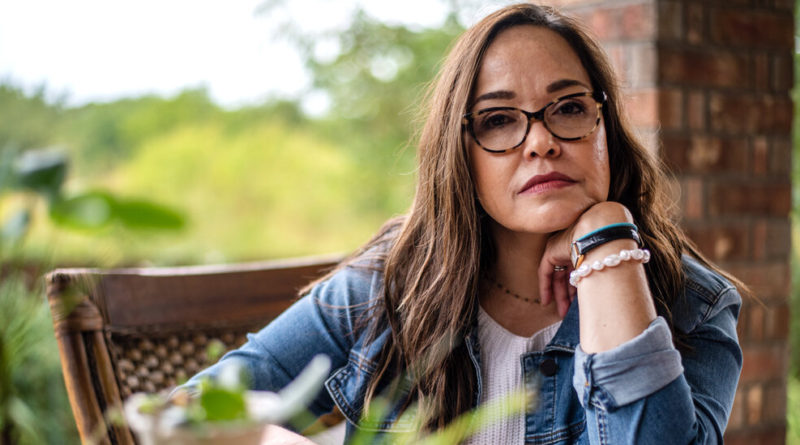For Long-Haulers, Covid-19 Takes a Toll on Mind as Well as Body
Although social media groups provide validation, there is also some risk. Groups that do not moderate their content can contribute to the spread of misinformation when users share unverified medical advice. (Survivor Corps requires people to link to trustworthy sources, and Body Politic deploys volunteers to moderate posts.) Support group members also sometimes inadvertently reinforce one another’s fears through detailed discussion of their own medical experiences, according to Jo Daniels, a psychologist at the University of Bath and an author of a recent study in the journal American Psychologist on Covid-19 and mental health.
Some long-haulers said that their doctors recommended limiting the time they spent on these groups daily so they could take in information without becoming overwhelmed.
The Coronavirus Outbreak ›
Frequently Asked Questions
Updated September 4, 2020
-
What are the symptoms of coronavirus?
- In the beginning, the coronavirus seemed like it was primarily a respiratory illness — many patients had fever and chills, were weak and tired, and coughed a lot, though some people don’t show many symptoms at all. Those who seemed sickest had pneumonia or acute respiratory distress syndrome and received supplemental oxygen. By now, doctors have identified many more symptoms and syndromes. In April, the C.D.C. added to the list of early signs sore throat, fever, chills and muscle aches. Gastrointestinal upset, such as diarrhea and nausea, has also been observed. Another telltale sign of infection may be a sudden, profound diminution of one’s sense of smell and taste. Teenagers and young adults in some cases have developed painful red and purple lesions on their fingers and toes — nicknamed “Covid toe” — but few other serious symptoms.
-
Why is it safer to spend time together outside?
- Outdoor gatherings lower risk because wind disperses viral droplets, and sunlight can kill some of the virus. Open spaces prevent the virus from building up in concentrated amounts and being inhaled, which can happen when infected people exhale in a confined space for long stretches of time, said Dr. Julian W. Tang, a virologist at the University of Leicester.
-
Why does standing six feet away from others help?
- The coronavirus spreads primarily through droplets from your mouth and nose, especially when you cough or sneeze. The C.D.C., one of the organizations using that measure, bases its recommendation of six feet on the idea that most large droplets that people expel when they cough or sneeze will fall to the ground within six feet. But six feet has never been a magic number that guarantees complete protection. Sneezes, for instance, can launch droplets a lot farther than six feet, according to a recent study. It’s a rule of thumb: You should be safest standing six feet apart outside, especially when it’s windy. But keep a mask on at all times, even when you think you’re far enough apart.
-
I have antibodies. Am I now immune?
- As of right now, that seems likely, for at least several months. There have been frightening accounts of people suffering what seems to be a second bout of Covid-19. But experts say these patients may have a drawn-out course of infection, with the virus taking a slow toll weeks to months after initial exposure. People infected with the coronavirus typically produce immune molecules called antibodies, which are protective proteins made in response to an infection. These antibodies may last in the body only two to three months, which may seem worrisome, but that’s perfectly normal after an acute infection subsides, said Dr. Michael Mina, an immunologist at Harvard University. It may be possible to get the coronavirus again, but it’s highly unlikely that it would be possible in a short window of time from initial infection or make people sicker the second time.
-
What are my rights if I am worried about going back to work?
Immunologists speculate that long-haulers’ symptoms might persist because they harbor fragments of viral genes that are not infectious but that trigger violent immune reactions. There is limited knowledge of Covid-19’s lingering impact, however, both because the illness is still new and because of broader gaps in understanding the long-term effects of viral infections.
Many long-haulers said their mental health suffered when they faced skepticism about their symptoms from friends, family and even medical providers. Female long-haulers pointed to numerous studies showing that medical providers were more likely to underestimate women’s pain levels and misdiagnose their conditions. Ms. Smith said that in her first week of illness, her male doctor suggested she might have a sinus infection rather than Covid-19. Ms. Vázquez was told that her difficulty breathing could be a product of anxiety. Gina Assaf, a consultant in Washington, D.C., who helped write Body Politic’s report, said that by week six of her Covid-19 course, her doctor asked if her symptoms could be bad allergies.
“That felt like gaslighting,” Ms. Assaf said. Her friends, some of whom had recovered from Covid-19 more quickly, were dubious of her lingering symptoms. “I stopped talking about it with a lot of my friends because it felt like they couldn’t understand.”
The pandemic has caused mental stress for many in its disruption to social, work and exercise routines. But these interruptions are often worse for long-haulers. Some cut themselves off from community — partly because they are sick, but also because they are loathe to explain physical and mental problems that they themselves do not understand. The activities that they normally rely on to relieve stress, such as exercise, are difficult or impossible to undertake. In Dr. Lambert’s survey of long-haulers, “inability to exercise or be active” was the fifth most commonly reported symptom, cited by 916 respondents.
Being unable to work and feeling unproductive can also hinder mental health, according the National Alliance on Mental Illness. Losing income and health insurance brings its own form of anxiety.



